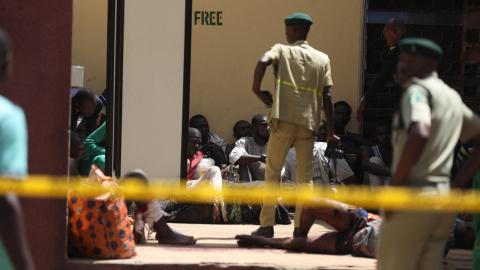Contemporary banditry in northwest Nigeria is a multifaceted phenomenon that encompasses a wide spectrum of violence waged by heavily militarised yet loosely organised rural gangs. These groups engage in everything from cattle rustling to kidnapping for ransom and extortion of peasant communities, with bandits becoming important de facto authorities in swathes of rural northwest Nigeria.
Underpinning the contemporary bandit conflict, we argue, is an ongoing ‘battle for the bush’ — a struggle over land, governance and rural livelihoods. Historically, the bush functioned as a shared space for farmers and pastoralists. However, land use data shows that the expansion of cropland farming has gradually overtaken grazing lands, reducing pastoral mobility and generating increasing conflicts. The state’s failure to mediate these tensions or provide equitable land policies, coupled with the breakdown of traditional conflict resolution mechanisms, has allowed grievances to fester. In response, bandits have violently reclaimed and reshaped the governance of the bush, not only as a refuge but as a domain of coercive rule, imposing levies on farming and controlling access to land and cattle.
We examine the historical drivers of this transformation and analyse how opportunistic criminals and social bandits have evolved into de facto rural rulers. Along the way, the trend of cropland expansion is being reversed. Yet instead of reestablishing a pastoral idyll, banditry is reproducing the very conditions that gave rise to it, further undermining rural livelihoods in the northwest. This has compounded rural poverty and food insecurity while depriving pastoralist youths’ access to government services and education that could provide for a better future. Our analysis implies that the crisis cannot be solved through military interventions alone but requires a rethinking of rural governance.
This study is accompanied by a report (Divided, they rule? DIIS Report 2025: 07) that explores the emerging political geography of banditry in detail.















